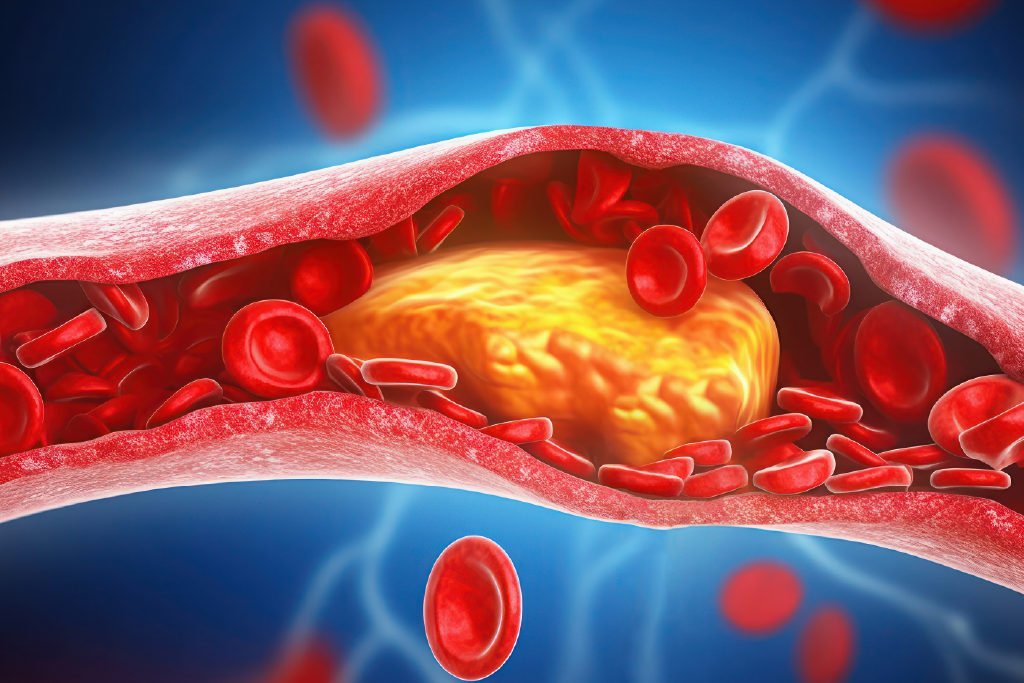
Early Warning Signs of High Cholesterol
Frequently referred to as the “silent killer,” high cholesterol silently damages our arteries and raises the risk of heart disease. Millions of people worldwide suffer from this ailment, yet many don’t recognise it until it’s too late. The sneaky thing about high cholesterol is that it doesn’t show any symptoms until problems start. The cardiovascular system may have already suffered substantial harm by the time chest discomfort or dyspnea appear. It is essential to recognise the early indicators of high cholesterol in order to take preventative measures for a healthier future. SRM Global Hospitals is the leading heart hospital that has an excellent team of leading heart surgeons to treat high cholesterol. The identification of these symptoms, which can range from overt ones like yellowish deposits around the eyes to more covert ones like recurrent headaches or stomach problems, encourages people to get medical attention.
People with this knowledge can make informed lifestyle, diet, and pharmaceutical decisions, effectively regulating cholesterol levels and lowering the risk of heart-related problems. Vigilance and proactive health management are critical in countering the silent menace of high cholesterol.
What is Cholesterol?
Cholesterol is a waxy, fat-like molecule found in all cells in the body. It helps to create cell membranes, produce hormones, and aid in digestion. However, high cholesterol levels in the blood can cause a variety of health problems, including cardiovascular disease. When cholesterol levels surpass the body’s requirements, it can build up in the arteries, producing plaque and restricting blood vessels, increasing the risk of heart attacks and strokes. Understanding this balance is critical to maintaining good health and avoiding cholesterol-related issues.
Understanding High Cholesterol:
High cholesterol, also known as hypercholesterolemia, occurs when there is an overabundance of cholesterol in the bloodstream. This excess cholesterol can build up along the walls of arteries, causing plaque. Over time, plaque formation narrows the arteries, decreasing blood flow and raising the risk of heart attacks and stroke. SRM Global Hospitals is the best heart hospital for the treatment of hypercholestremia.The narrower arteries also make it more difficult for oxygen-rich blood to reach key organs, exerting stress on the cardiovascular system and increasing the risk of significant problems. Understanding the effects of high cholesterol emphasises the necessity of early detection and proactive management in reducing its influence on overall health and SRM Global Hospitals is the best cardio hospital with the most advanced diagnostic techniques for treatment of high cholesterol.
Early Warning Signs:
- Yellowish Deposits Around Eyes or Skin: One apparent symptom of excessive cholesterol is the formation of yellowish deposits, known as xanthomas, around the eyes, elbows, knees, or skin. These deposits, which might appear as little, raised lumps or patches, indicate elevated cholesterol levels in the blood.
- Chest Pain or Angina: High cholesterol can cause plaque accumulation in the arteries that provide oxygenated blood to the heart. This can result in chest pain or discomfort, known as angina, particularly during physical exercise or emotional stress. Angina is commonly described as a burning, squeezing, or pressure in the chest.
- Shortness of Breath: When cholesterol narrows the arteries that supply the lungs, it can cause shortness of breath, particularly during exercise or while resting flat. This happens when the lungs do not get enough oxygenated blood due to limited blood flow.
- Limb Numbness or Weakness: Cholesterol buildup in the arteries can cause reduced blood flow to the limbs, resulting in numbness, weakness, or tingling sensations in the arms and legs. This could indicate peripheral artery disease (PAD), a disorder linked to excessive cholesterol and an increased risk of heart disease and is diagnosed by the best cardio surgeon.
- Frequent Headaches: While headaches can have a variety of reasons, persistent or recurring headaches, particularly those accompanied by dizziness or impaired vision, may indicate elevated cholesterol. Headaches and other neurological symptoms can result from limited blood supply to the brain caused by constricted arteries.
- Digestive Issues: High cholesterol levels can impair the liver’s capacity to produce bile, resulting in digestive difficulties like indigestion, bloating, constipation, or gallstones. These symptoms could signal underlying cholesterol concerns and should not be overlooked.
What You Need to Know:
- Regular Cholesterol Screening: Because high cholesterol sometimes causes no symptoms until difficulties occur, regular cholesterol screening is critical, especially if you have risk factors such as a family history of heart disease, obesity, a poor diet, or a sedentary lifestyle. Blood testing can determine your cholesterol levels and detect any irregularities early on.
- Healthy Lifestyle Changes: Making lifestyle changes is essential for managing cholesterol and lowering the risk of heart disease. This involves eating a well-balanced diet high in fruits, vegetables, whole grains, and lean meats while reducing saturated fats, trans fats, and cholesterol-containing items. Regular exercise, maintaining a healthy weight, and quitting smoking are all important for cardiovascular health.
- Medication and Treatment: In some circumstances, lifestyle adjustments alone may be insufficient to manage cholesterol levels. To lower cholesterol and lessen the risk of heart disease, your doctor may prescribe statins or other cholesterol-lowering medications. It is critical to follow your doctor’s instructions and take drugs as prescribed.
- Monitor and manage risk factors: Monitoring and managing other risk factors for heart disease, such as high blood pressure, diabetes, and obesity, is just as important as cholesterol levels. Controlling these factors through lifestyle modifications and, if necessary, medicines can help to lower the risk of heart disease complications.






